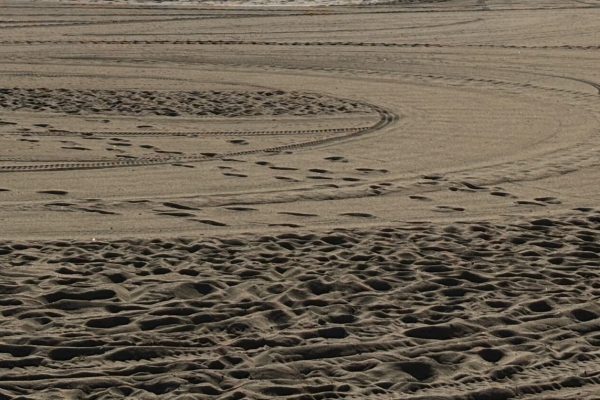This Mussar practice for grief provides a structured way for mourners to remember and to live their own lives in a way that honors the person who died
“What is one trait you really admired in your mom?”
“She wasn’t afraid to take risks. She was so brave—my mom would try anything!”
After inviting the grief group participant to share a story about her mom’s bravery, I ask, “What would it look like for you to embody this trait?”
I have been supporting children and families coping with grief and long-term parent illness for many years, and I’ve had many conversations like this one. It provides the grieving individual with an opportunity to share something they loved about someone they loved, to find comfort in positive memories, and to build resilience through personal growth in a way that honors the person who died.
I have always appreciated the wisdom of Jewish mourning rituals—the way we mark time with shiva, shloshim, and kaddish, and the way we wait a year to unveil the tombstone, because it can take that long, or even longer, to integrate a loss. However, this system is not without its challenges. After the first year has passed, Judaism only instructs mourners to remember the person who died by attending Yizkor (memorial) services at specific holidays, and by lighting a yahrzeit candle on the anniversary of the person’s death. There is no structure for processing loss in between these moments, and grief doesn’t live by a calendar. Furthermore, these rituals, like the observation of shiva and shloshim, are reserved for specific family members—a partner, parent, child, or sibling of the person who died, leaving other friends and relatives without a ritual to practice. What can Judaism offer to immediate family members after the first year has passed? What can Judaism offer to those outside of the circle of mourners?
In recent reflection about the way my Judaism and my work as a Jewish communal professional influence my volunteer role as a grief counselor, I realized that my “one trait” question is, in some ways, like Mussar. Mussar is a practice of Jewish ethics—it involves personal improvement on one middah—one personality trait—each month. The traits include everything from diligence (harizut) to patience (savlanut), from humility (anavah) to gratitude (hakarat ha-tov). The personal work might involve meditation, journaling, deep learning with a havruta (study partner), implementing new practices, and exploring Jewish texts that focus on that particular middah.
A Mussar practice for grief would provide additional opportunities for mourners to grow through their pain by honoring the traits they loved most in the person who died. Someone might select the middah of gratitude if she admired the way her friend focused on appreciating important people in his life. She could try to thank one important person in her own life each week. It would also be helpful when the practical, lived reality of loss requires the mourner to step into the role of the deceased—for example, if the parent who was responsible for housecleaning dies, someone else in the family might focus on the middah of cleanliness, infusing the chore with meaning and memory.
If you would like to engage in a Mussar practice for grief but you’re not sure where to start, I offer the following structure to use in whatever way is most helpful. However, please pay attention to your body and your thoughts—if this structure creates additional stress, I encourage you to stop, and grieve in a way that makes sense for you.
A Mussar Practice for Grief
First, make a list of up to 12 traits you admired in the person who died. This means you would focus on one trait for each month of the year. If you’d like to focus on certain traits for more than one month, or if you’d like to take breaks between months, list fewer traits. As you generate the list, consider specific examples of times when the person who died lived each middah. Notice which memories make you smile, and which make you sad. Notice when you feel frustrated or lost or surprised or excited. Give each emotion its space as you meander through your memories. This is part of the process.
You may either assign one middah to each month or you can decide which middah to focus on as each month begins. If you know that certain times of the year are more stressful for you, focus on a middah that will ground you as you navigate the source of stress, especially if the person who died previously supported you in these times.
For each middah, select a sacred text to study, a new practice to implement, and a space to reflect. For example, if you are focusing on the middah of courage, you might study the story of Moses at the burning bush, asking God “Who am I that I should lead the Jews out of Egypt?” Moses doesn’t have the confidence to complete this enormous task, and he takes it on anyway.
Your practice might be saying “yes” to one new idea or project each week, even if you’re worried about the outcome. Defined broadly, this means you can try a new type of cuisine or you can share your ideas in a space where you usually choose not to. You might even choose to try a new activity that brought joy to the person who died. You get to decide what it means to be courageous in their memory.
Your space to reflect could be a journal where you write your memories of the person who died when they were living with courage, and explore your feelings about trying new things. If you are a verbal processer, it could be a weekly conversation with a close friend or havruta in a park that you like. It might be both. Commit to regularly scheduled reflection that explores your grief, your memories, and what it’s like for you to elevate each middah in your life.
If it would be helpful to you there are many Mussar books and websites that list the middot in Hebrew and English and include commentary on the ways in which others have studied each personality trait. I recommend generating your own list of traits before you look up lists of middot online, as the online lists can feel overwhelming, and remembering your favorite things about the person who died helps with the healing process.
The goal of this experience is not to force people to move on by focusing on growth alone. No one builds resilience by ignoring the pain of grief. People do, however, become more resilient if they have a way to reflect as they integrate the loss into the rest of their lives. This Mussar practice for grief provides a structured way for mourners to remember and to live their own lives in a way that honors the person who died.
Mussar is a Jewish practice that is available to anyone at any time. Immediate family members can engage with it after the first year of mourning has passed, and it provides a structure for those outside the circle of mourners to experience their own grief. Judaism provides a map for mourning, but not everyone gets the map, and the map’s instructions aren’t adequate for every vehicle. My hope is that this Mussar practice can be an additional set of directions for those who are seeking another path.










